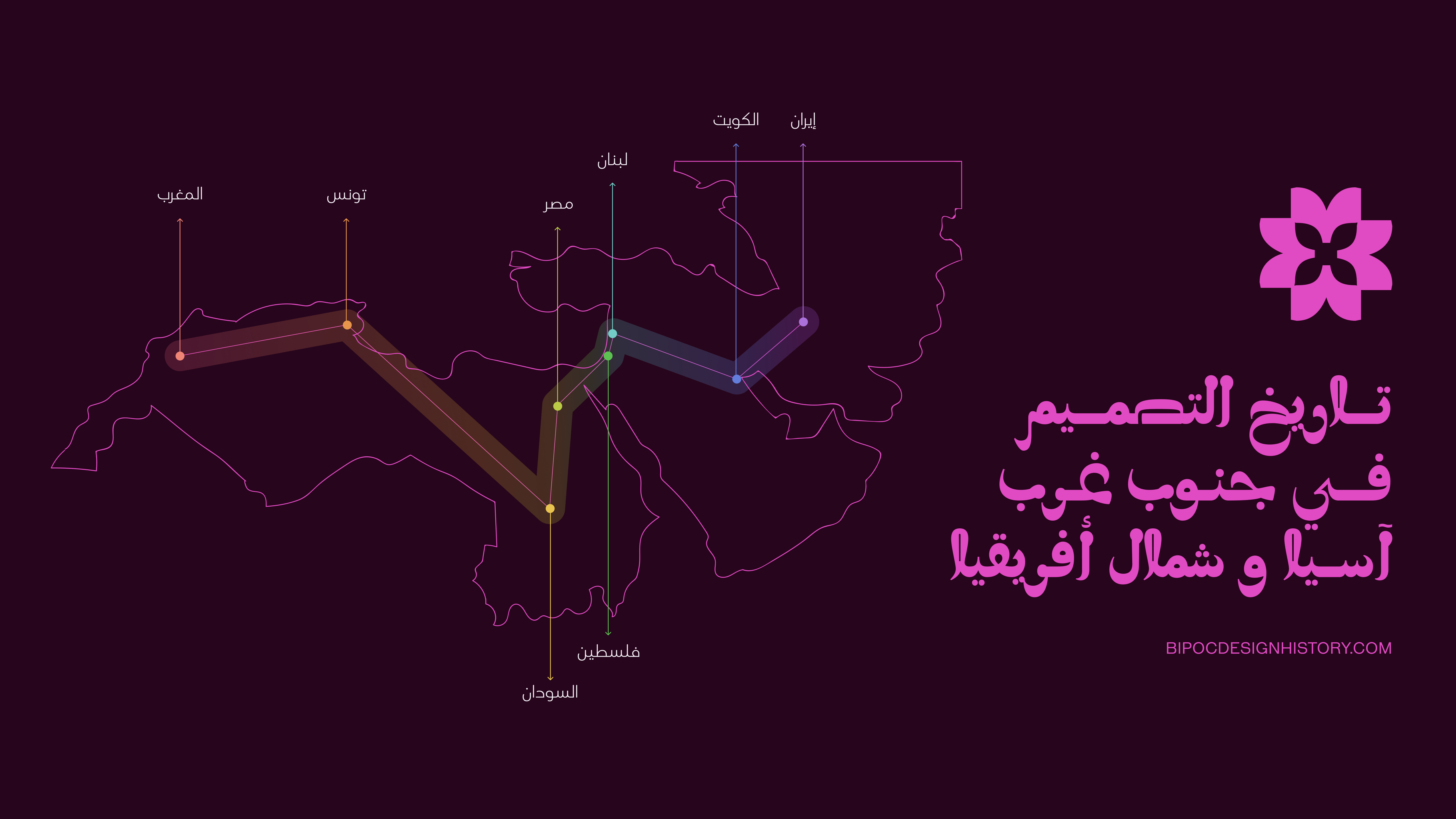BIPOC Design History is pleased to announce a new course that celebrates the diversity in the rich, colorful, and politically engaged Southwest Asia & North Africa region.
BIPOC (Black Indigenous People of Color) Design History’s third course: Design Histories in Southwest Asia & North Africa: Voices from the SWANA Diaspora, facilitated by Randa Hadi and Polymode, kicks off on Saturday May 13, 2023.
Join us for these live classes through June 13th or take the classes at your own speed afterwards.
![]()
![]()
![]()
Design Histories in the Southwest Asia & North Africa: Voices from the SWANA Diaspora is a course that highlights the diversity of our communities and puts forward the most vulnerable in our liberation. The nine (9) classes in this course will be centered around the various visual cultures, varied Arab identities, and design histories from the SWANA region, with emphasis placed on amplifying the voices of women who are often unheard. This course will challenge dominant narratives that are often written about us and not by us.
This series of lectures, revisits, rewrites, and actively archives past and contemporary design practices within the SWANA region through the continuous process of negotiation.
Through live and asynchronous lectures, readings, and discussions, the class sheds light on moments of oppression and visibility. The series revisits and rewrites the course of design history in a way that centers previously marginalized designers, cultural figures—and particularly BIPOC and QTPOC people.
Themes and topics include: cartographers, artists, newspaper designers, feminist craft practices, Arabic script, typography, Arab queerness, protest posters, Islamic art vs. Arabic art, cultural visual language, with dialogue around political resistance through design, liberation movements, and decolonizing the mind. The diversity of voices from the diaspora is brought together by educators, cultural practitioners, and designers from Egypt, Iran, Kuwait, Lebanon, Morocco, Palestine, Sudan, and Tunis.
Our contributing speakers: Sherine Salla, Bahia Shehab, Naïma Ben Ayed, Omaima Dajani, Sadeem Yacoub, Dina Benbrahim, Munirah Al Shami, Danah Abdulla, Wael Morcos, Marwan Kaabour, Sheharazad Fleming, Morehshin Allahyari, and Randa Hadi.
About BIPOC Design History
BIPOC Design History was created due to the frustrations and glaring gaps in design education for Black, Indigenous, and People of Color. In collaboration with a world-renowned group of co-authors and educators, Polymode Studio created and produced Black Design in America: African Americans and the African Diaspora in Graphic Design, 19th—21st Century which launched in January of 2021. In September of the same year, it was followed by our second course, Incomplete Latinx Stories of Diseño Grafico centering the work and histories of art and design in Latin America facilitated by Ramon Tejada. Since then over 4,290 students, ranging from 18 to 80 years of age, have enrolled in our courses. Our classes have been rewatched over 6,000 times, and over 30 institutions of higher learning have partnered with us for licenses. Participants tune in across continents and time zones in over 40 countries from New Zealand to Brazil, Zimbabwe to Lebanon, South Korea to Switzerland.
About Polymode Studio
Polymode Studio leads the edge of contemporary graphic design through poetic research, learning experiences, and making cool shit for clients in the cultural sphere, innovative businesses, and community-based organizations. The studio operates between the complexity of designed systems and lived experience—with core principles of visual expression, media adaptability, and typographic function. As a bi-coastal, LGBTQ+, and Minority-owned studio with offices in Los Angeles, California, and Raleigh, North Carolina, Polymode ignites change to create social and sustainable impact.
For a press kit, including downloadable high-resolution images for this course, please follow this link →
Instagram: @bipocdesignhistory
